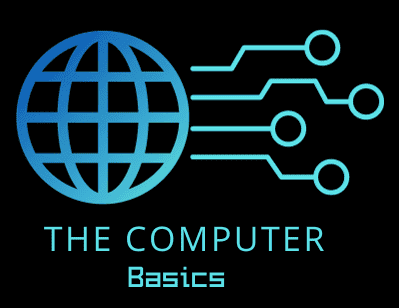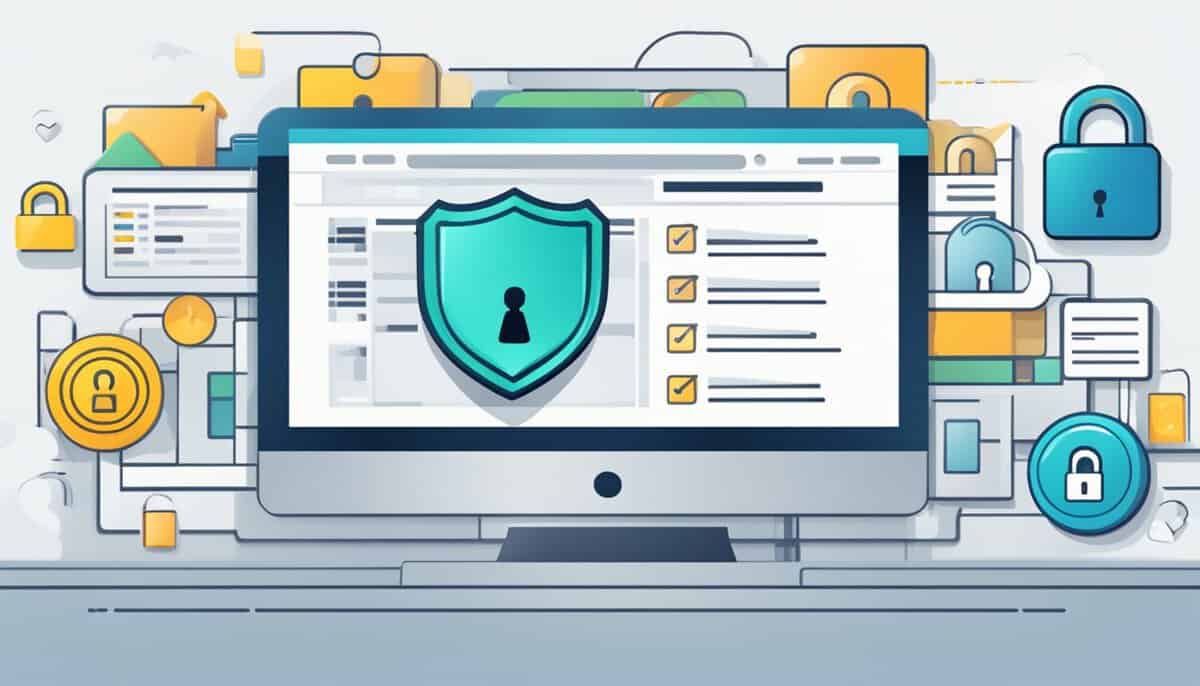Securing your computer is more important than ever. With the rise of online threats, having the right tools to protect your data is essential.
Choosing the right antivirus software is a crucial step in ensuring your computer’s security and your personal privacy.
Beyond antivirus, there are other key tools you should consider to fortify your system. These include firewalls, anti-spyware, and secure browsers. Keeping your software up to date also plays a vital role in defending against new vulnerabilities.
By selecting trusted providers and regularly reviewing your security setup, you stay one step ahead of potential threats. It’s not just about having protection but making sure it’s the best available.
Key Takeaways
- Antivirus software is crucial for computer security.
- Additional tools like firewalls and secure browsers enhance protection.
- Regular software updates are essential for ongoing security.
Understanding Computer Threats
Cyber threats can cause significant damage to your computer, personal information, and even your finances. The key dangers include malware, ransomware, phishing, and identity theft, each posing unique risks.
The Rise of Malware and Ransomware
Malware is software designed to harm or exploit your computer. It can steal data, monitor your activities, or even damage your system. Ransomware is a specific type of malware that locks your files and demands payment to unlock them. This has become more common in recent years, affecting both individuals and large organizations.
Ransomware attacks often start with malicious websites or email attachments. Once activated, the software encrypts your data and makes it inaccessible. It’s crucial to have robust anti-malware protection and to regularly back up your data to avoid falling victim to these attacks.
Phishing and Identity Theft
Phishing scams trick you into providing sensitive information, such as passwords or credit card numbers, by pretending to be legitimate websites or services. These scams often come as spam emails, fake pop-up ads, or deceptive websites. Phishing protection is essential, including features in many modern security programs that warn you about suspicious links.
Identity theft occurs when someone uses your personal information without permission. This can lead to unauthorized charges on your credit card, or worse, completely hijack your identity. Staying vigilant and using multi-factor authentication can help protect against these threats.
Protecting Personal Information
Keeping your personal information secure is critical in this digital age. Be cautious about sharing sensitive data online. Always ensure that websites you use for financial transactions have “https” in the URL, indicating a secure connection.
Utilize strong passwords, change them regularly, and consider using a password manager. Also, be wary of public Wi-Fi networks, which can be breeding grounds for hackers looking to intercept your information. Encrypting your data and using a reliable VPN can add extra layers of security.
By understanding and addressing these threats, you can significantly reduce your risk of cyberattacks and keep your information safe.
Choosing the Right Antivirus Software
When picking antivirus software, consider key features, how it impacts your system, and whether it can protect multiple devices like PCs, Macs, and mobile platforms.
Key Features to Look For
It’s important to choose antivirus software that offers real-time protection. This keeps your system safe by constantly scanning for threats. Look for features like firewall, anti-phishing, and ransomware protection. These help to block suspicious activities and protect your data.
Parental controls are useful if you’ve got kids using the same devices. They allow you to monitor and control what your children can access. Regular updates are also crucial; they help the antivirus identify the newest threats. Some highly recommended options include Bitdefender, Norton, and Malwarebytes, which top many lists.
Performance and System Resources
While antivirus software is essential, it shouldn’t slow down your system. Some antivirus programs are known to use a lot of system resources. This can make your computer sluggish, especially if it’s an older model.
Look for software that is lightweight and has a minimal impact on performance. Reviews from PCMag and How-To Geek often mention system performance in their assessments. Bitdefender and Norton are praised for their balance of protection and performance. Conversely, real-time scanning might be disabled temporarily if you’re doing resource-heavy tasks like video editing.
Cross-Platform Protection
If you own multiple devices, choose antivirus software that protects all of them. Look for solutions that support PC, Mac, Android, and iOS. This way, you can manage your security from a single dashboard.
Norton 360 and Bitdefender provide excellent cross-platform protection, securing your data whether you’re on a laptop, smartphone, or tablet. Intego is a great option for Mac users specifically, while Malwarebytes is effective across all platforms. Having one solution for all your devices simplifies updates and ensures consistent protection.
Make sure the antivirus you pick can handle multiple platforms, especially if you switch between different operating systems regularly. This unified approach can save you time and stress.
Essential Security Tools Beyond Antivirus

When thinking about computer security, antivirus software often comes to mind first. However, there are several other tools that play important roles in keeping your device safe and secure.
Firewalls and VPN Services
A firewall acts as a barrier between your computer and external threats. It monitors outgoing and incoming traffic to block harmful data. Many computers come with built-in firewalls, but you can also use third-party options like ZoneAlarm or Norton. A Virtual Private Network (VPN) encrypts your internet connection, making it difficult for hackers to track your online activities. It’s a must-have for privacy, especially when using public Wi-Fi. Services like NordVPN and ExpressVPN are popular choices for robust VPN protection.
Password Managers and Encryption
Managing and remembering multiple passwords can be challenging. Password managers like Bitwarden and LastPass store and organize your passwords securely. They use encryption to safeguard your data, making it difficult for unauthorized users to gain access. Bitwarden, in particular, uses zero-knowledge encryption, meaning only you can decrypt your information. This is essential for identity protection and secure password management. By using these tools, you ensure that your sensitive information like banking details remains protected.
Parental Controls and Monitoring
If you have kids, parental controls are crucial. They help you monitor and restrict what your children can access online. Tools like Norton Family and Qustodio offer features like web filtering, screen time management, and activity tracking. These programs allow you to block inappropriate content and monitor your child’s online behavior, ensuring a safe online experience for them. This not only protects them from harmful content but also helps in keeping tabs on who they might be interacting with online.
By using these tools, you’re not just adding layers of security but also ensuring a wholistic approach to protecting your digital life.
The Role of Software Updates in Security

Keeping your software up to date is crucial for protecting your computer from cyber threats. Regular updates and patches, as well as vulnerability scans and fixes, play key roles in ensuring your system’s security.
Regular Updates and Patches
Regular updates and patches are essential for maintaining the security of your software. Software vendors, like Microsoft, often release updates to fix security vulnerabilities that could be exploited by hackers.
Through these patches, issues found in programs are often resolved. This might include bugs that were slowing down your computer or glitches that could make your data less secure.
Neglecting updates leaves your computer open to potential attacks. Windows security updates, for example, include fixes for known issues that could be used to gain access to your personal information.
It’s also good practice to enable automatic updates. This way, you won’t miss critical patches that protect your system. Regular updates are a simple yet effective way to keep cyber threats at bay.
Vulnerability Scans and Fixes
Vulnerability scans are another key part of your computer’s defense. These scans identify weak spots in your software that could be targeted in an attack.
Tools built into your operating system, or available from third parties, can help perform these scans. For instance, Windows Security includes features that regularly check for vulnerabilities.
Once a vulnerability is identified, prompt fixes are essential. These fixes usually come as security patches that close loopholes hackers might exploit.
Ignoring these scans and fixes can lead to data breaches. It’s important to routinely conduct these scans and apply any necessary patches to ensure that your system remains secure.
Vulnerability scans and fixes make sure that any newfound weaknesses are quickly addressed, keeping your information safe from cybercriminals.
Reviews and Testing: Choosing Trusted Providers

When picking security software for your computer, it’s crucial to look at expert reviews and trusted testing labs. These insights can guide you in choosing the most reliable antivirus solutions available.
Expert Reviews and Recommendations
Experts like Neil J. Rubenking from PCMag provide thorough reviews on security software. He rates Bitdefender Total Security and Norton 360 Deluxe highly due to their extensive features and performance. Bitdefender is known for strong protection and a user-friendly interface, while Norton stands out for its additional tools like backup and web protection.
Publications such as CNET and Tom’s Guide also offer trusted recommendations. Norton LifeLock often gets high marks for virus and malware detection, praised for its reliability on both PC and Mac. These expert reviews are invaluable for comparing features, ease of use, and overall effectiveness of different security suites.
Antivirus Testing Labs and Scores
Testing labs like AV-Test, AV-Comparatives, and SE Labs provide independent scores that are essential in evaluating antivirus programs. These labs test software against thousands of malware samples to see how well they detect, block, and remove threats.
Bitdefender Antivirus Plus frequently earns top scores for its advanced threat detection and minimal system impact. Similarly, Norton antivirus consistently ranks high, being praised for its comprehensive protection and low false positives.
Seeing how different products perform in these tests helps you choose software that offers the best defense against online threats, ensuring you get reliable and effective protection.

